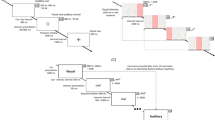Abstract
During the past few years, the market for apps monitoring traditional health and wellbeing parameters such as heart rate, levels of physical activity and sleep patterns has rapidly expanded. In this paper, we articulate how we are currently engineering an early warning system designed to support long-term brain health, termed cognitive endurance, based on such monitoring. It can be thought of as a rudimentary expert system. It will monitor physical and social activity, stress and sleep patterns and signal when these parameters are such that a person’s cognitive endurance might be at risk. The aim of the system is to guide the user to adopt sustainable behavioral patterns from a cognitive endurance perspective. This paper articulates (1) what we mean by cognitive endurance, (2) how cognitive endurance may be enhanced, (3) our cognitive endurance monitoring platform, (4) our approach to calculating cognitive endurance risk, (5) specific challenges related to our approach and (6) what the long term benefits might be of successively monitoring cognitive endurance.

Similar content being viewed by others
Notes
The focus here is not on the user study but on how to use the sensor data for assessing stressload in order to create a signalling system for cognitive risk.
References
Whitbourne SK, Whitbourne SB, Whitbourne SK (2011) Adult development and aging: Biopsychosocial perspectives. Wiley, Hoboken
Hains BC (2006) Brain disorders. Chelsea House Publishers, Philadelphia, p 4
Brodal P (2010) The central nervous system: Structure and function. Oxford University Press, New York, p p140
Garcia-Segura LM (2009) Hormones and brain plasticity. Oxford University Press, Oxford
Perls T (2004) Dementia-free centenarians. Exp Gerontol 39:1587–1593
Colcombe SJ, Erickson KI, Scalf PE, Kim JS, Prakash R, McAuley E, Elavsky S, Kramer AF (2006) Aerobic exercise training increases brain volume in aging humans. J Gerontol Ser A Biol Sci Med Sci 61(11):1166–1170
Erickson KI, Voss MW, Prakash RS et al (2011) Exercise training increases size of hippocampus and improves memory. Proc Natl Acad Sci USA 2011(108):3017–3022
Sapolsky RM (1992) Stress, the aging brain, and the mechanisms of neuron death. MIT Press, Cambridge
Cavanaugh JC, Blanchard-Fields F (2011) Adult development and aging. Wadsworth/Cengage Learning, Australia, p p249
Van Reeth O, Weibel L, Spiegel K, Leproult R, Dugovic C, Maccari S (2000) Interactions between stress and sleep: from basic research to clinical situation. Sleep Med Rev 4:201
Xie L, Kang H, Xu Q, Chen MJ, Liao Y, Thiyagarajan M, O’Donnell J, Nedergaard M (2013) Sleep drives metabolite clearance from the adult brain. Science 342(6156):373–377
Kikhia B, Simón MG, Jimenez LL, Hallberg J, Karvonen N, Synnes K (2014) Analysing body movements within the Laban effort framework using a single accelerometer. J Sensors 14(3):5725–5741
Cao Y, Tao L, Xu G (2009) An event-driven context model in elderly health monitoring. In: Ubiquitous, autonomic and trusted computing, symposia and workshops. Symposia and workshops on ubiquitous, autonomic and trusted computing, pp 120–124
Guo F, Li Y, Kankanhalli MS, Brown MS (2013) An evaluation of wearable activity monitoring devices. In: Proceedings of the 1st ACM international workshop on Personal data meets distributed multimedia (PDM ‘13). ACM, New York, pp 31–34
Stern Y (2003) The concept of cognitive reserve: a catalyst for research. J Clin Exp Neuropsychol 25(5):589–593
Blessed G, Tomlinson BE, Roth M (1968) The association between quantitative measures of dementia and of senile change in the cerebral grey matter of elderly subjects. Br J Psychiatry 114(512):797–811
Stern Y (2002) What is cognitive reserve? Theory and research application of the reserve concept. J Int Neuropsychol Soc 8:448–460
Craik FIM, Bialystok E, Freedman M (2010) (2010) Delaying the onset of Alzheimer disease: bilingualism as a form of cognitive reserve. Neurology 75:1726–1729
Chertkow H, Whitehead V, Phillips N, Wolfwon C, Atherton J, Bergman H (2010) Multilingualism (but not always bilingualism) delays the onset of Alzheimer disease: evidence from a bilingual community. Alzheimer Dis Assoc Discord. 24:118–125
Stern Y (2012) Cognitive reserve in ageing and Alzheimer’s disease. Lancet Neurol 11(11):1006–1012
Hedman A, Karvonen N, Hallberg J, Merilahti J (2014) Designing ICT for health and wellbeing: an allostatic. In: Behavioral-change approach to a monitoring and coaching app (to appear), vol 8868. Springer Lecture Notes in Computer Science
Acknowledgments
This work has been supported by the European Institute of Innovation & Technology (EIT ICT Labs) within the HWB Cognitive Endurance activity.
Author information
Authors and Affiliations
Corresponding author
Rights and permissions
About this article
Cite this article
Hedman, A., Hallberg, J. Cognitive Endurance for Brain Health: Challenges of Creating an Intelligent Warning System. Künstl Intell 29, 123–129 (2015). https://doi.org/10.1007/s13218-015-0350-7
Received:
Accepted:
Published:
Issue Date:
DOI: https://doi.org/10.1007/s13218-015-0350-7




